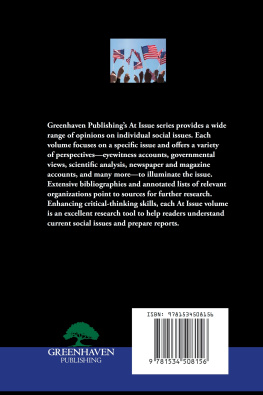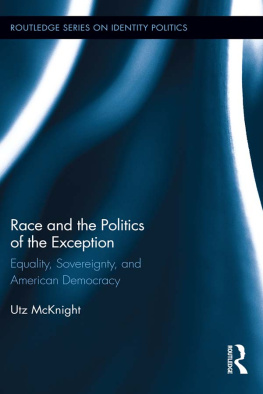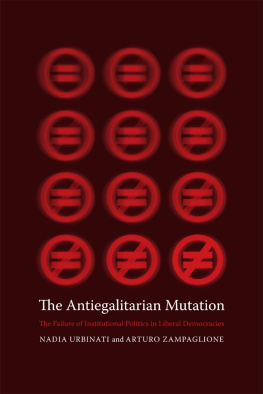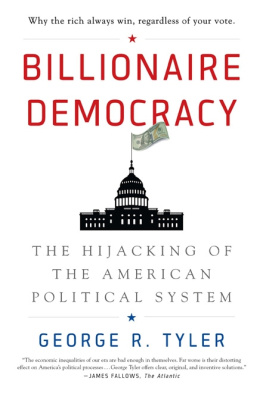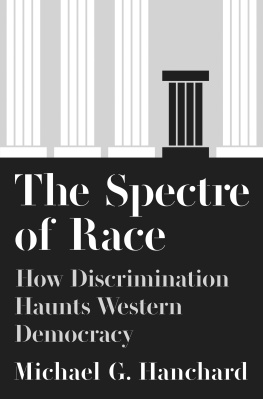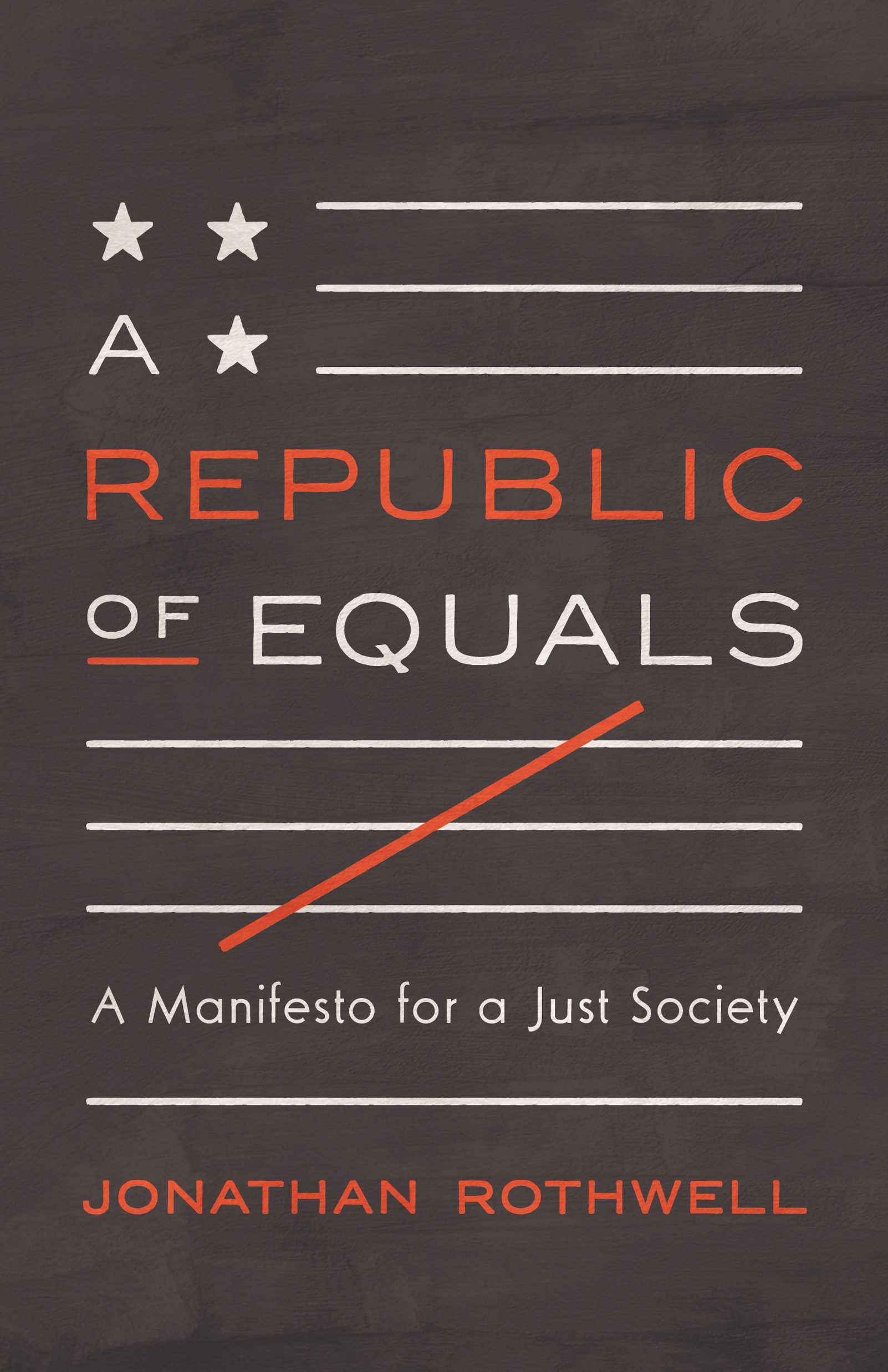ACKNOWLEDGMENTS
AS MY FATHER LIKES TO SAY: Everyone and anyone can escape the prison of their birth. Thats one of his favorite syllogisms. His life was proof enough for him, and he maintains that it would have been impossible without the opportunities afforded by education. After a modest upbringing in an Irish-Swedish family in Boston, he enlisted in the military, played professional hockey, earned a bachelors degree from a hockey scholarship, received benefits from the GI Bill, and went on to earn a doctorate and have a successful career in the administration of higher education; along the way, he met my mother, who became a preschool teacher and devoted convert to Roman Catholicism. She grew up in suburban Philadelphia in an English-American family who traces their American ancestors back to the 1600s. Despite very different family backgrounds and personalities, theyve had nearly 50 years of happy marriage. I dedicate this book to them. Their love and careful investment in my development and education made this book possible.
Id also like to thank the many other teachersat all levels of educationscholars, professors, colleagues, friends, and family who have invested in me throughout my life and tolerated and encouraged my devotion to justice.
There are too many to thank, but I want to mention gratitude for the opportunity to study with a few who were particularly influential: Vincent Colapietro, Judith Van Herik, Ken Hirth, Leswin Laubscher, Roger Brooke, Duncan Foley, Anwar Shaikh, Lance Taylor, Carles Boix, Anne Case, Esteban Rossi-Hansberg, Paul Krugman, Atul Kohli, Katherine Newman, and Jesse Rothstein, among other excellent and generous professors and scholars. My mentor, advisor, and co-author Douglas S. Massey has been particularly influential.
I am also extremely grateful to Mark Muro as well as Alan Berube, Amy Liu, and Bruce Katz at The Brookings Institution for hiring me straight out of graduate school, recognizing something in my potential and fostering it over seven years. Fellow Brookings colleagues Richard Reeves, Carol Graham, Neil Ruiz, and Isabelle Sawhill were also encouraging and helpful.
I owe a great debt to Andrew Reamer and others at the George Washington University Institute of Public Policy for their willingness to welcome me as a visiting scholar and give me access to their library resources.
My Gallup colleagues, especially Patrick Bogart and Ilana Ron-Levy, and our leader, Jim Clifton, deserve special thanks for giving me the time and resources to work on this book and enrich the analysis with Gallups wealth of data and expertise. It would have been impossible to write this book without their support.
A handful of scholars and friends generously reviewed earlier drafts or presentations and helped me make this book better than it would otherwise have been, including Carol Graham, Ashley Jardina, Carles Boix, Scott Winship, Richard Florida, Andre Perry, Richard V. Reeves, Eric Turkheimer, Dalton Conley, Piotr Paradowski, Jim Harter, Julie Ray, Xavier Harris, and Naftali Bean Rutter. Finally, I am grateful and fortunate to have benefited from the support and wise editorial guidance of Sarah Caro at Princeton University Press, the excellent editing of Erin Davis, and the anonymous referees who reviewed early drafts of the manuscript and helped me improve it.
A REPUBLICQUALS
Behind the Discontent
OUR COUNTRY IS IN SERIOUS TROUBLE, began Donald Trump as he formally announced his candidacy for president of the United States in June 2016. He listed China, Japan, and Mexico as aggressors who are beating us and killing us economically via bad trade agreements. Mexico, meanwhile, is further harming the United States through immigration, he claimed: The U.S. has become a dumping ground for everybody elses problems.
In remarks that would be much quoted and criticized, he said:
When Mexico sends its people, theyre not sending their best. Theyre not sending you. Theyre not sending you. Theyre sending people that have lots of problems, and theyre bringing those problems with us. Theyre bringing drugs. Theyre bringing crime. Theyre rapists. And some, I assume, are good people.
Trump eventually won 46 percent of the vote in the 2016 U.S. presidential election. His victory followed significant gains by nationalist parties in the European Unions 2014 parliamentary elections, and a shocking vote by the United Kingdom to leave the European Union.
The nationalists seem to have two things in common: An insistence that their countries are declining, economically and culturally, and the identification of external forces as the reasonwith trade and immigration being primary suspects. These views are badly mistaken, but the nationalists have a point about the ill-functioning of the economy, and much of the public shares their sense that something important is wrong with their countrys political leadership.
This chapter lays out what is wrong and why. Rising income inequality and slow economic growth have been two of the most striking patterns in rich countries during the last 35 years. The explanation is not trade or technological innovation; nor is it mass migration or the rise of global superstars. Rather, countries are becoming more inefficient and unequal because serviceswhich are regulated and controlled by elite associations to the benefit of their membersare taking over the economy, and a small group of elite service providers has managed to secure much of the gains for itself via the gradual accumulation of rights and privileges that elevate this group above markets.
VOTES OF NO CONFIDENCE
In most of the worlds richest countries, political discontent reigns. Confidence in government is low and has fallen steadily in recent years. In 2006, 43 percent of residents living in Organisation for Economic Co-Operation and Development (OECD) member countriesthe worlds 35 richest democraciesexpressed confidence in their national government, when asked by the Gallup World Poll. By 2016, that already low share had fallen to just 37 percent of residents. Shockingly, thats lower than the global average of 54 percent.
Confidence has plummeted in a number of countries that have seen a rise in support for nationalist parties or politicians, including Greece, Finland, the United States, Denmark, the United Kingdom, and Austria ( In the United States, confidence is only slightly higher at 30 percent.
On the other hand, low or declining confidence in national government is not inevitable in rich countries. In the Netherlands, confidence increased from 43 percent to 57 percent. In Switzerland, confidence went from 63 percent to 80 percent. It is also up and relatively high in Canada and Germany. Extreme political parties have not been as successful in these countries, with the exception of Germany, where the far-right Alternative for Germany Party (AfD) has gained traction, reportedly, in response to the governing partys acceptance of a large number of refugees.


